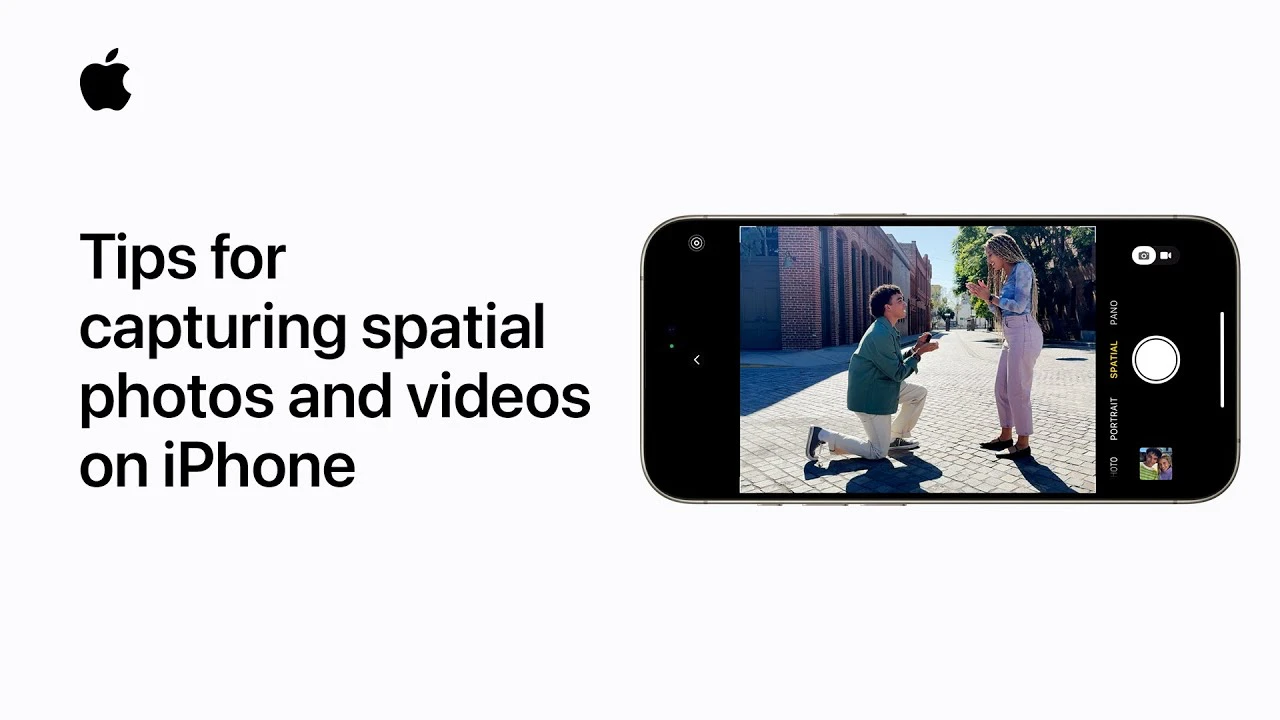The world of mobile photography and videography has taken a giant leap forward with the introduction of spatial capture capabilities on the latest iPhone models. If you own an iPhone 16 Pro, iPhone 16, or iPhone 15 Pro running iOS 18.1 or later, you now have the power to create stunning, immersive 3D memories with just a few taps on your device. The video below from Apple will guide you through the process of unlocking the full potential of your iPhone’s spatial photography and videography features, helping you capture and relive your most cherished moments in a whole new dimension.
Before diving into the world of spatial capture, it’s essential to ensure that your iPhone is updated to iOS 18.1 or later. This update introduces a range of enhancements and optimizations specifically designed to elevate your spatial photography and videography experience. Once your device is up to date, open the camera app and select the spatial mode. This innovative mode allows you to effortlessly switch between capturing photos and videos with a single tap, streamlining your creative process and allowing you to capture the perfect moment without missing a beat.
Mastering the Art of Spatial Composition
To truly showcase the depth and immersion of spatial photography and videography, it’s crucial to pay attention to the composition of your shots. When framing your subject, consider incorporating elements in the foreground, midground, and background to create a rich, layered visual experience. This approach adds depth to your images and videos, drawing the viewer into the scene and making them feel as if they are right there with you.
When it comes to distance, aim to maintain a range of 3 to 8 feet between your iPhone and your subject. This sweet spot ensures that your spatial captures retain optimal clarity and detail, allowing you to showcase the intricacies of your subject matter. Lighting also plays a vital role in the quality of your spatial content. Strive for even, balanced lighting conditions whenever possible, as harsh shadows or overexposed areas can detract from the overall impact of your photos and videos.
- Rotate your iPhone to landscape orientation for a wider field of view
- Incorporate foreground, midground, and background elements for depth
- Maintain a distance of 3 to 8 feet from your subject for optimal clarity
- Aim for even lighting conditions to prevent distortion
Elevating Your Spatial Experience with Apple Vision Pro
While most Apple devices allow you to view spatial content in a 2D format, the Apple Vision Pro takes your viewing experience to the next level. This innovative device is designed to fully immerse you in the world of your spatial captures, bringing your memories to life with unprecedented depth and realism. By leveraging the advanced capabilities of the Vision Pro, you can explore your photos and videos in a true 3D environment, reliving each moment as if you were there all over again.
To further enhance the dynamism and engagement of your spatial videos, consider moving with your subject as they shift within the frame. This technique ensures that your subject remains the focal point of the video, adding a sense of motion and energy to your captures. By mastering these mobile photography tips and techniques, you’ll be well on your way to creating spatial content that captivates and inspires your audience.
The integration of spatial photography and videography into the iPhone ecosystem represents a monumental step forward in the realm of mobile content creation. By harnessing the power of these features, you can transform the way you capture and share your most precious memories, creating immersive visual narratives that transport your viewers to the heart of the moment. Whether you’re a seasoned professional or a passionate amateur, the spatial capabilities of your iPhone empower you to push the boundaries of your creativity and craft truly unforgettable experiences.
Source & Image Credit: Apple
Filed Under: Apple, Apple iPhone, Guides
Latest TechMehow Deals
Disclosure: Some of our articles include affiliate links. If you buy something through one of these links, TechMehow may earn an affiliate commission. Learn about our Disclosure Policy.
